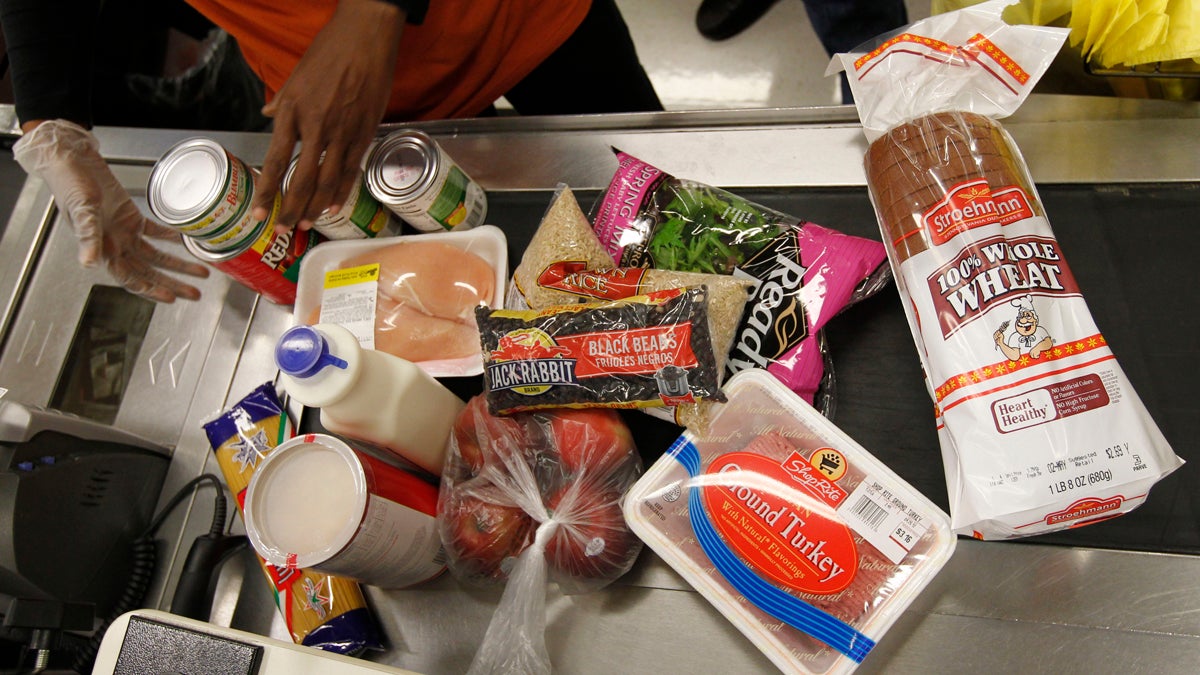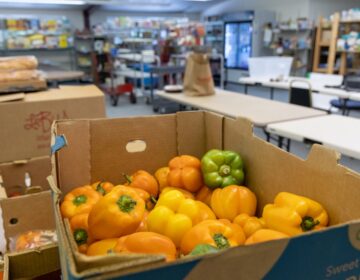February food stamp benefits going out early due to U.S. shutdown
The government shutdown is forcing states to distribute Supplemental Nutrition Assistance Program benefits more than a month early.

A cashier scans purchases at a ShopRite grocery story in Philadelphia. (Matt Rourke/AP)
The government shutdown is forcing states to distribute money to food stamp recipients more than a month early.
But that’s spurring worry that some recipients won’t be able to make the money last until March.
The states distribute federal money to help supplement pantries of low-income residents every month through the Supplemental Nutrition Assistance Program (SNAP) — formerly known as food stamps. But because of the government shutdown, that money is running out. States now have until Sunday to deliver funds that are meant to last through the end of February.
SNAP benefits go to 1.8 million people in Pennsylvania, 730,000 in New Jersey, and 136,000 in Delaware.
Ray Fitzgerald, who oversees the program that distributes the funds in the First State, said he wants to ensure recipients know they won’t be getting anything in February.
“It is incumbent on our clients that they really are diligent about budgeting their money and buying foods that might last a little bit longer, nonperishable foods, just to make sure they don’t fall into some kind of crisis with food,” Fitzgerald said.
In Delaware, SNAP benefits are distributed at various times throughout the month. Some will even receive their February benefits before the January allotment arrives.
“To be clear, these early food benefits are not additional or bonus benefits,” said Kara Odom Walker, secretary of Delaware’s Department of Health and Social Services. “We urge [clients] to plan and budget wisely. It is important for them to use January benefits in January, and February’s benefits in February.”
In addition to children, elderly and the disabled, most SNAP recipients in Delaware are working or have worked in the last 12 months.
“We have some of the most vulnerable people in the state that we provide services to that receive food stamps,” Fitzgerald said. “This is definitely going to be a hardship for a lot of folks. They are the working poor who are really being impacted by the shutdown and the impact on the SNAP benefits.”
Fitzgerald said the state is optimistic that the shutdown will be lifted by March, but it’s not clear what will happen if it is not.
“We’ll have to figure out next steps if something like that happens,” he said.
The state is coordinating with the Food Bank of Delaware and other community food pantries to help recipients get food into the hands of those who need it.
WHYY is your source for fact-based, in-depth journalism and information. As a nonprofit organization, we rely on financial support from readers like you. Please give today.





